An Interview with C James Desmond
Author of Vile Self Portraits
Hi friends,
I’m coming at you this week with another podcast-style interview, this time with
, author of the pithy, poignant novel Vile Self Portraits. If you’re a writer, I think this interview is really worth your time. It’s also worth your time if you’re a reader or an educator—or just a human being—because it’s raw and Desmond drips with sincerity as he talks about writers, writing, influence, growing up, and addiction.Desmond first caught my attention on Substack with videos of his guerrilla marketing campaign. He was going around Boston just dropping copies of his book everywhere—in bookstores, in little libraries, on railings at train stations, at Madison Square Garden—and then I started reading his prose, and it was good. I’m a reader and writer myself, of course, and a high school educator, so I immediately felt a kinship with and an affinity for C. James. On the matter of this affinity, two points: first, I don’t do drugs myself, and, by the grace of God, don’t have any addictions (besides this burgeoning social media one) to speak of, but growing up I did live in a community where teen drinking and drug use were pretty normalized, and I had a number of friends whose ‘soft’ use blossomed into full-blown addiction. Many of these individuals were ‘outsiders’ and ‘rebels’ in ways I found attractive and intriguing when I was young: there’s always something counter-cultural about rebellion and substance abuse and the associated self-destructive impulses, and this ‘counter-cultural’ quality runs closely parallel, I think, to the way a lot of good literature is counter-cultural. As a result of this, I’ve long been interested in literature about drug use, drinking, and the people involved in such pursuits and communities. To offer a perhaps lesser-known example, I think Max Ludington’s book Tiger in a Trance, about a young man traveling with The Grateful Dead, is a fantastic and well-written novel.1
My second point with regard to my fondness for Desmond and his book is that I feel like I recognize him. I recognize him as another writer who is largely self-educated and muddling through, finding success sheerly by way of reading others, typing out their work to see what it feels like, and by bloody-mindedly putting in the time. He doesn’t have an MFA, doesn’t have connections, and earns his money bartending and working in the restaurant industry2. By his own admission, he wasn’t a good student in high school, and he would, in retrospect, perhaps have liked to have gotten more education, but things just didn’t work out for him that way. So I don’t just recognize him as a fellow writer, but, as a long-time high school teacher, now, I feel like I recognize him as a student: that kid who just doesn’t like school, who rebels sometimes just for the sake of rebelling—because 'it seemed cool' to rebel—who isn’t a good student but is smart—who may, indeed, have a kind of genius, or be capable of doing work that touches that level of quality. There are so many like Desmond who aren’t going to be successful in school, in part, because being successful in school requires a high degree of conformity, and he’s just not going to conform. I see these kids all the time: great kids full of potential for whom, for whatever reason, the system just doesn’t work.
I didn’t have him in class, but I know this kid:
In the interview, Desmond speaks with modesty and self-reflection on how important it was for him to write his novel and how he came to do it his own way. He speaks with candor of his autodidacticism, his favorite authors, his process, his skepticism of following beaten paths, and the work he’s doing now—a poetry collection, a short story collection, and a follow-up novel. He favors a clean, honest style in his writing, and I think that comes across in his speaking, as well.
Having finished the book myself, I feel like there would be something poetic about taking my copy and leaving it in a neighborhood ‘little free library’—or taking it to a used bookstore and just dropping it somewhere prominent on a display table. I’m afraid I’m too selfish for that, though, and the book just looks too good with the other Substack books on my shelf.
The Interview: (it should go without saying that this one isn’t okay for little ears…)
This passage brings to mind Conrad for me, from Heart of Darkness: “there is something after all in the world allowing one man to steal a horse while another must not look at a halter.”
Desmond’s book is on sale cheap at Amazon—$7.86 as of this writing. That’s a steal. Vile Self Portraits reads fast, is evocative of Desmond’s forebears Carver and Johnson, and feels good in the hands. If you enjoyed this interview, I hope that you’ll please buy Desmond’s book, and then please do this man the favor of reviewing it on Amazon and Goodreads. It’s brutal out there for authors and small booksellers—every sale, rating, and review counts.
Until next time,
Peter
Peter Shull is a Midwestern novelist, essayist, short story writer, and educator. His novel Why Teach? is available from Bookshop.org, B&N, Amazon, Kindle Store, and Kobo.
I came to Ludington’s novel by way of a great short story of his called “Thaw,” which I found in a Tin House anthology. It’s worth the read if you can find it.
In addition to being worth subscribing to for his prose and poetry writing, Desmond is worth subscribing to for his incisive, insightful, scalding writing about individuals working in the food and drink industry in Boston.



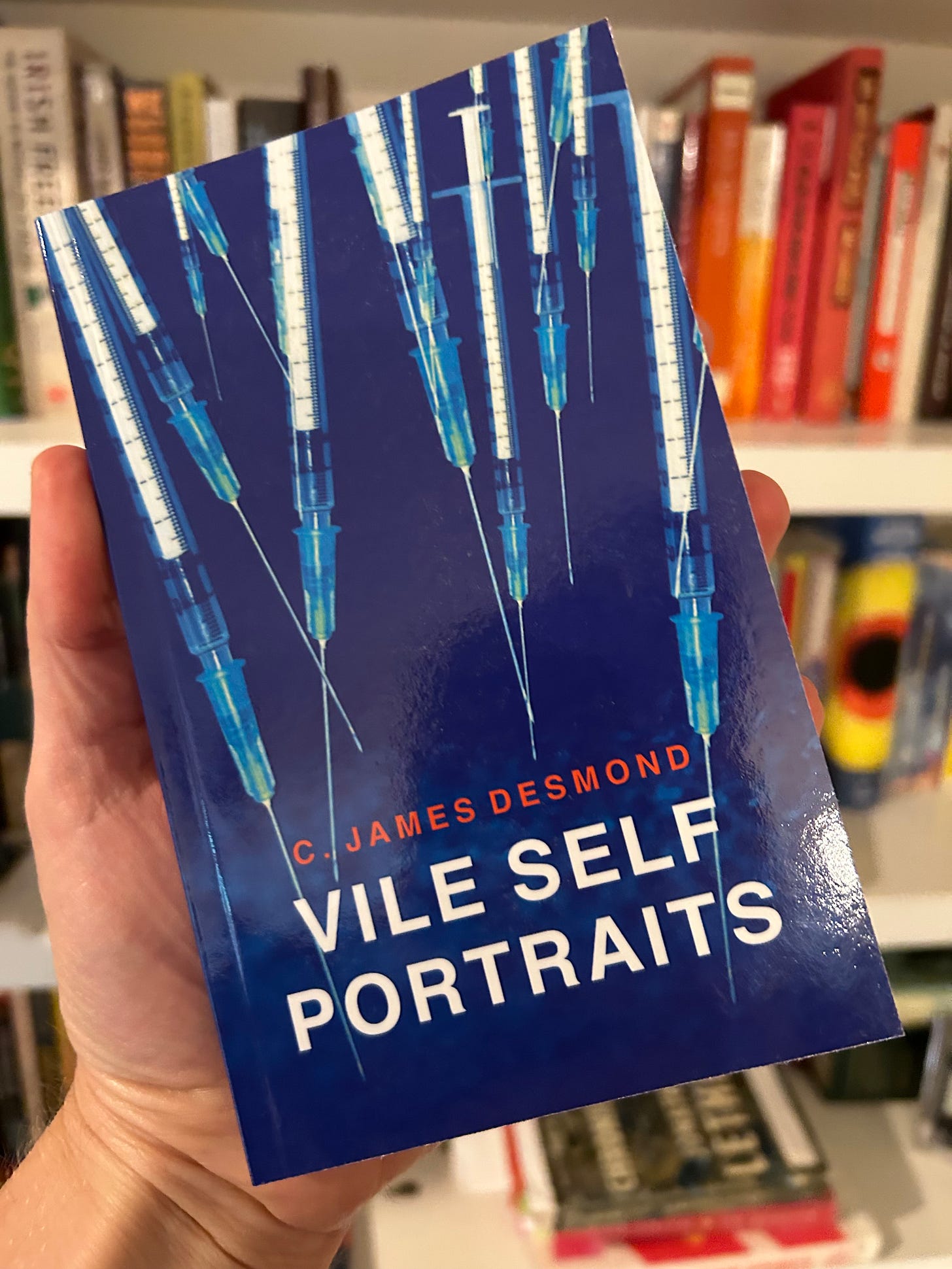
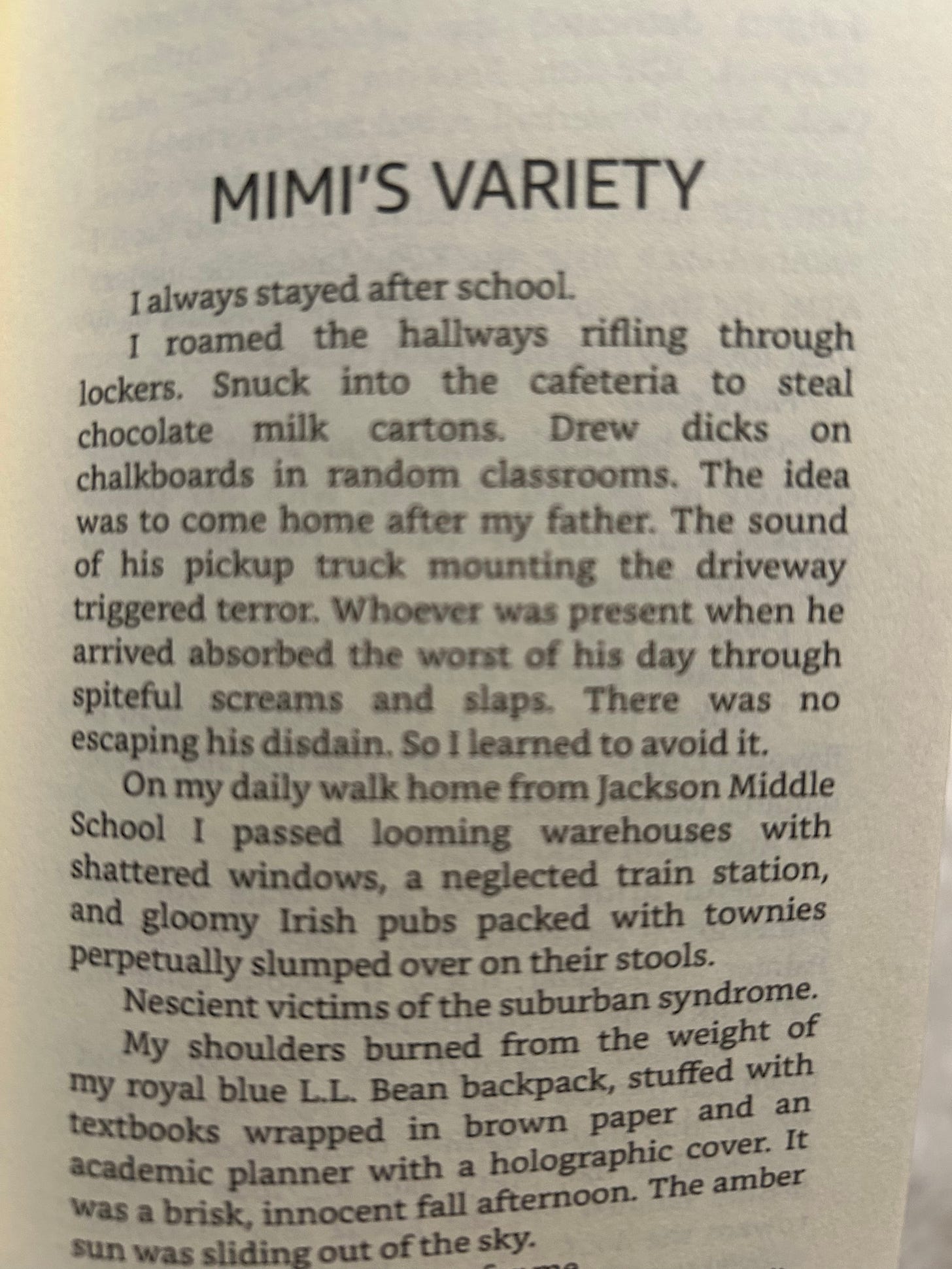
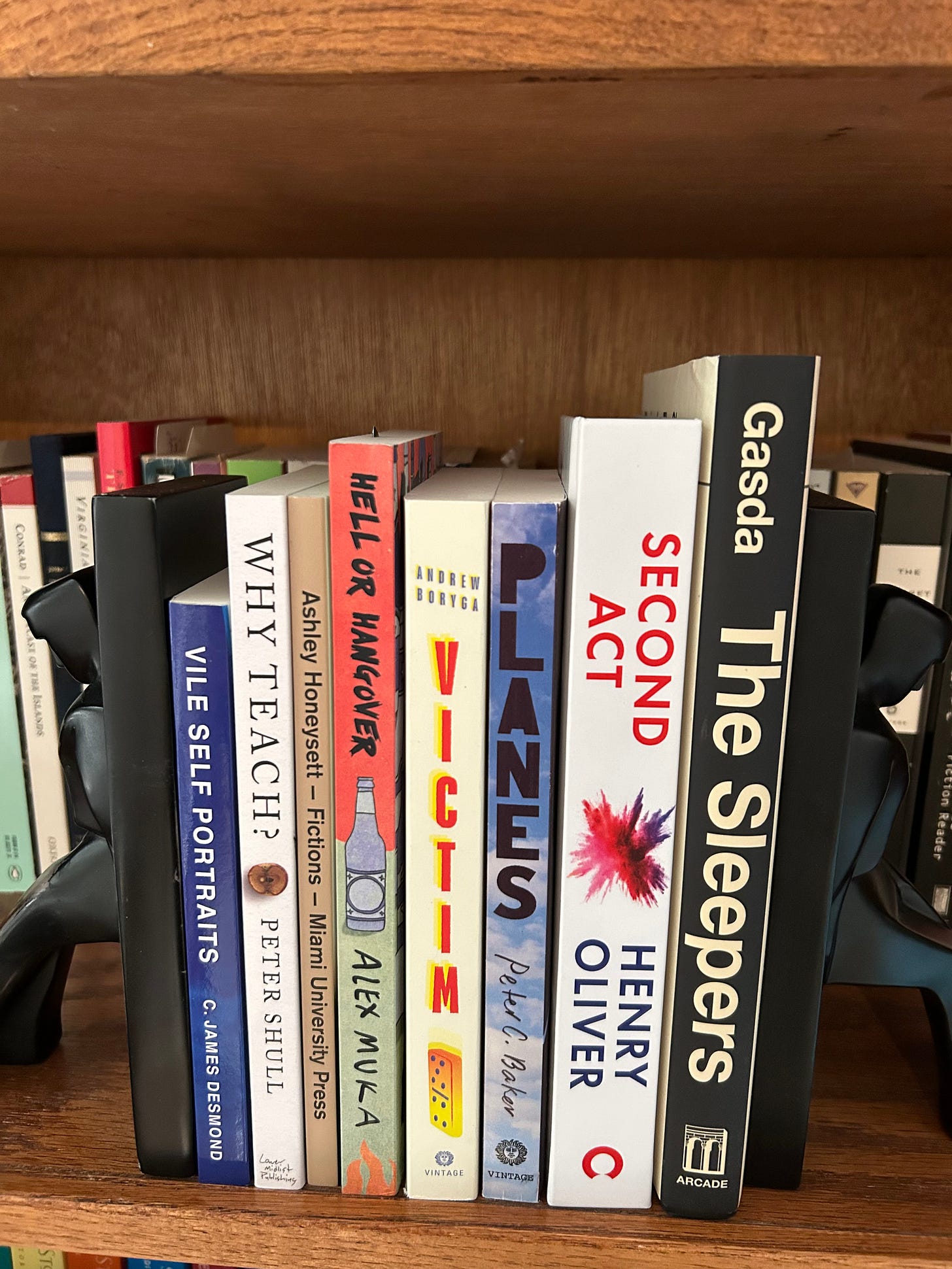
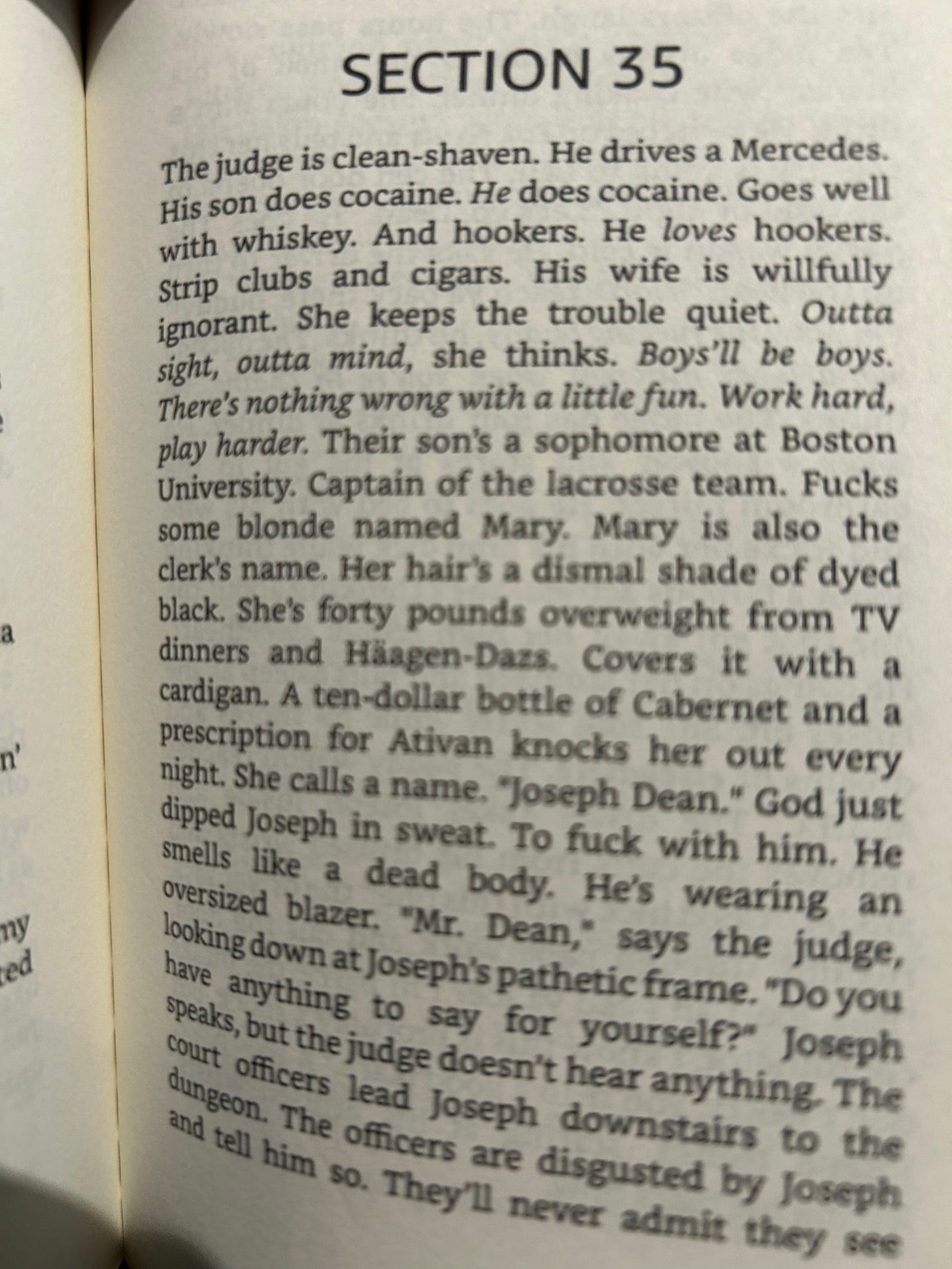
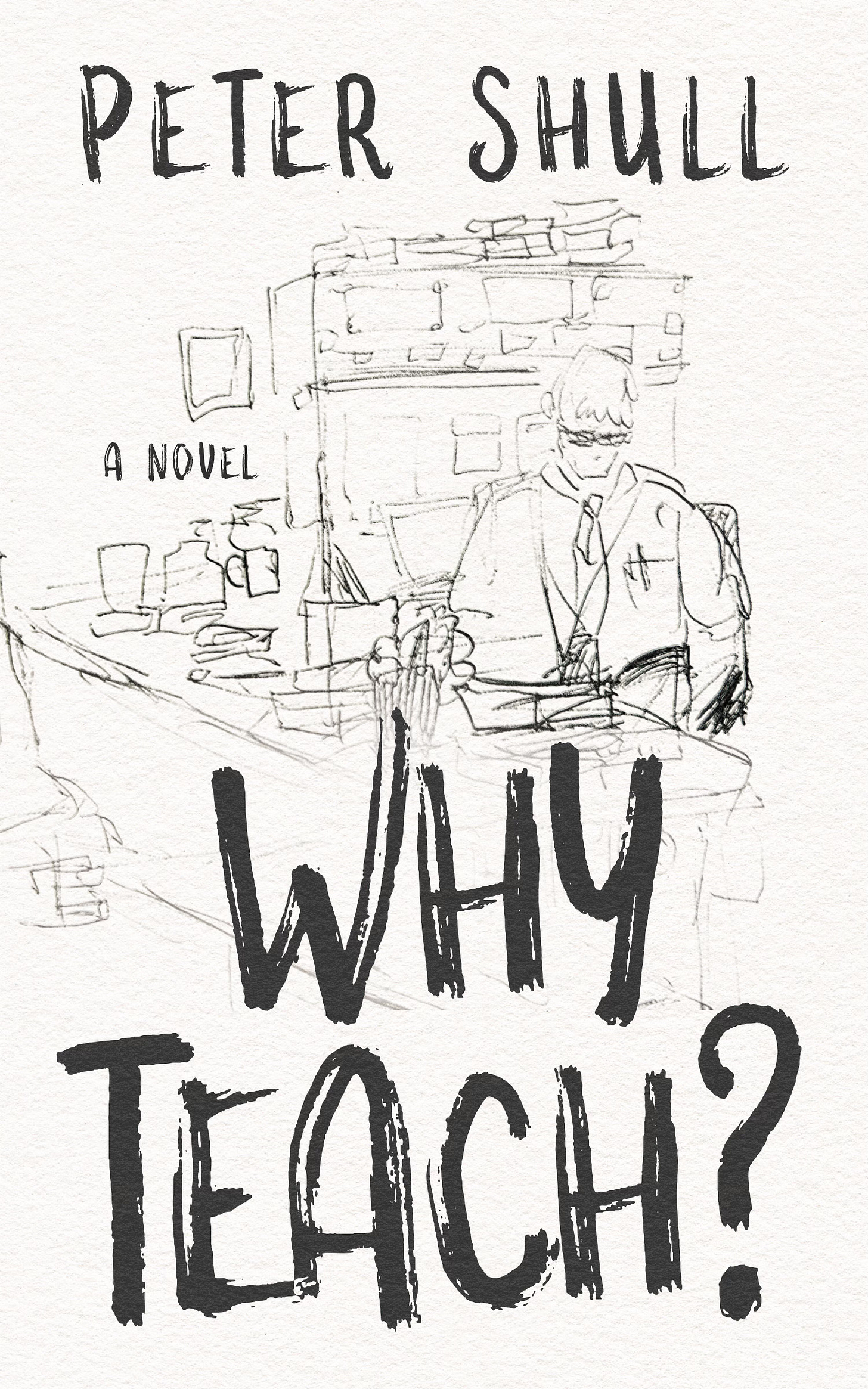
Thank you for this. It makes me feel less alone and incompetent.
"My second point with regard to my fondness for Desmond and his book is that I feel like I recognize him. I recognize him as another writer who is largely self-educated and muddling through, finding success sheerly by way of reading others, typing out their work to see what it feels like, and by bloody-mindedly putting in the time. He doesn’t have an MFA, doesn’t have connections, and earns his money bartending and working in the restaurant industry². "
Great spotlight on an exciting writer Connor James Desmond.